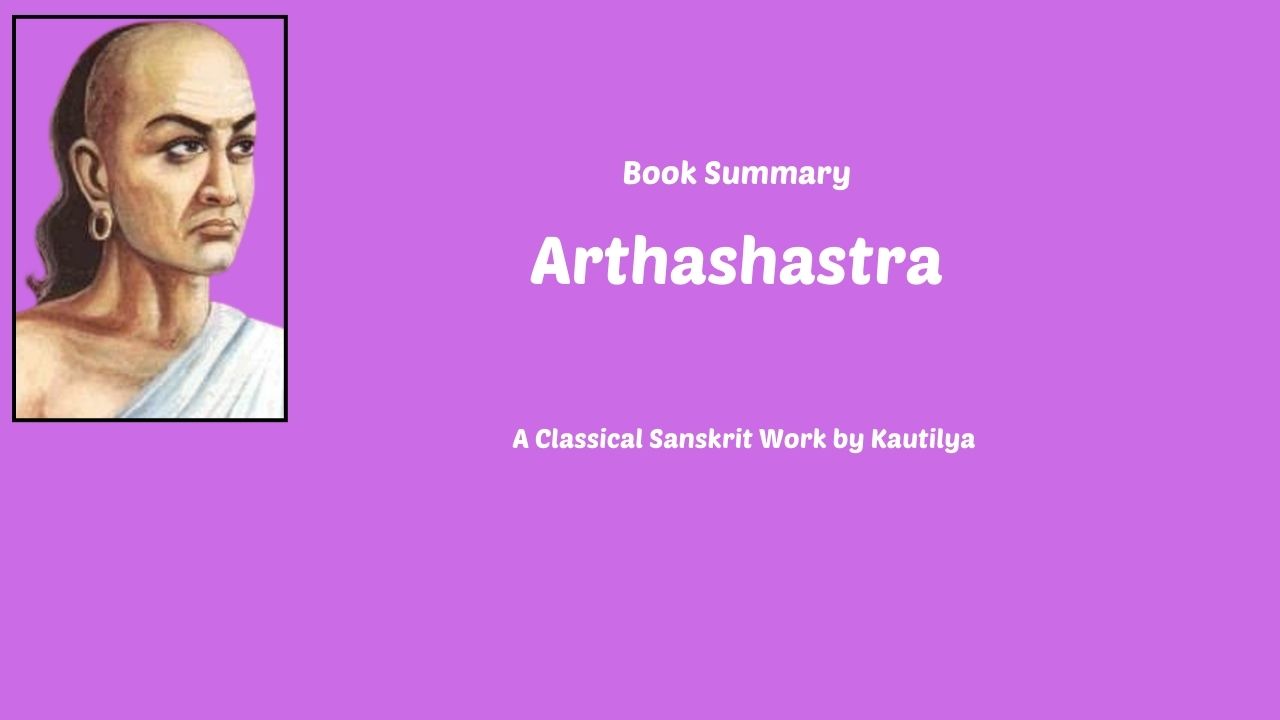
Summary of Kautilya’s Arthashastra #
“Arthashastra” (also known as “The Science of Economics”) is an ancient Indian text written by Kautilya, a court advisor to the Mauryan emperor Chandragupta Maurya. The book was composed around 300 BCE and is considered one of the earliest and most influential works on economics in the world.
Book Overview:
“Arthashastra” consists of seven books:
- The Foundation: Book I discusses the importance of economic policy and the role of the state in promoting prosperity.
- Economic Policy: Book II explores the principles of economic policy, including taxation, revenue collection, and expenditure management.
- Trade and Commerce: Book III examines trade and commerce, including the regulation of markets, taxation, and foreign trade.
- War and Finance: Book IV discusses war finance, military organization, and logistics.
- Administration: Book V addresses administrative matters, including governance, bureaucracy, and public policy.
- Diplomacy: Book VI explores diplomacy, including international relations, negotiation, and strategy.
- Ethics: Book VII is a philosophical section that discusses ethics, morality, and the role of the state in promoting social welfare.
Key Concepts:
- Economic Policy: Kautilya emphasizes the importance of economic policy in promoting prosperity and for the state.
- Taxation: He discusses various taxation methods, including direct and indirect taxes, and argues that taxation should be fair, efficient, and equitable.
- Public Finance: The book explores public finance, including revenue collection, expenditure management, and debt management.
- Trade and Commerce: Kautilya examines trade and commerce, including the regulation of markets, trade agreements, and tariffs.
- War Finance: He discusses war finance, military organization, and logistics, highlighting the importance of economic planning for military success.
Key Ideas:
- State Intervention: Kautilya advocates for state intervention in the economy to promote prosperity and security for the state.
- Meritocracy: He promotes a meritocratic system where appointments are based on talent and ability rather than birth or social status.
- Economic Growth: The book emphasizes the importance of economic growth, investment, and entrepreneurship in promoting prosperity.
- Social Welfare: Kautilya argues that economic policies should aim to promote social welfare, including poverty reduction, education, and public health.
- International Relations: He discusses international relations, including diplomacy, negotiation, and strategy.
Influence and Legacy:
“Arthashastra” has had a significant impact on Indian economic thought and continues to influence:
- Indian Economic Policy: The book shaped Indian economic policy for centuries, influencing the development of India’s economy.
- Asian Economic Thought: Kautilya’s ideas have influenced Asian economic thought, including Chinese and Southeast Asian economies.
- Economic Systems: His ideas on state intervention, meritocracy, and public finance continue to shape modern economic systems.
Criticisms and Controversies:
- Authoritarianism: Some critics argue that Kautilya’s emphasis on state control and authoritarianism is outdated and undemocratic.
- Class Bias: The book has been criticized for promoting a class-based system, where appointments are based on birth and social status.
- Limited Focus on Human Rights: Kautilya’s ideas have limited focus on human rights, social justice, and individual freedoms.
Conclusion:
“Arthashastra” is an influential ancient text that continues to shape modern economic thought. While it has faced criticisms and controversies, the book remains an important contribution to the development of Indian economicpolicy and Asian economic thought.


Comments: